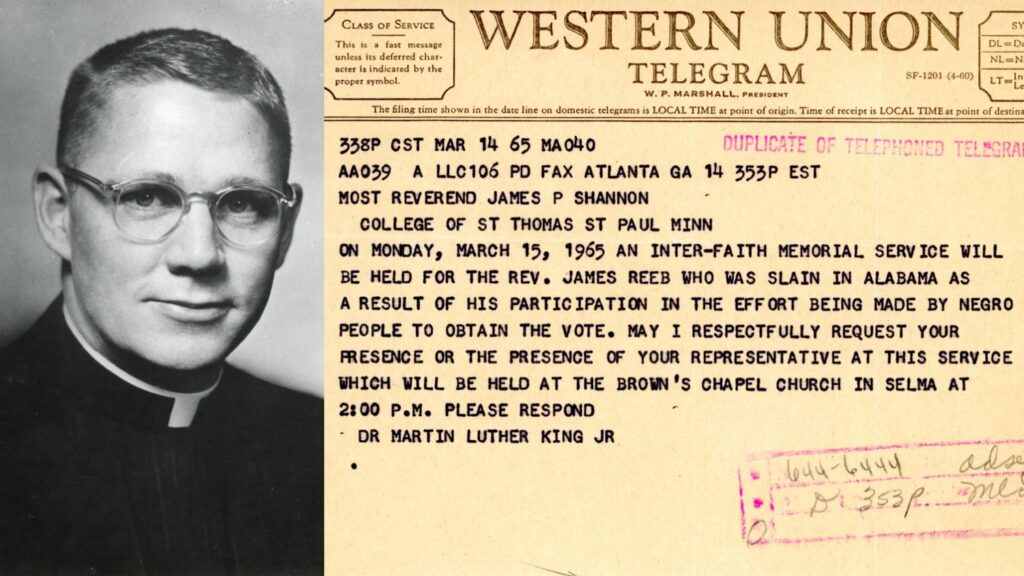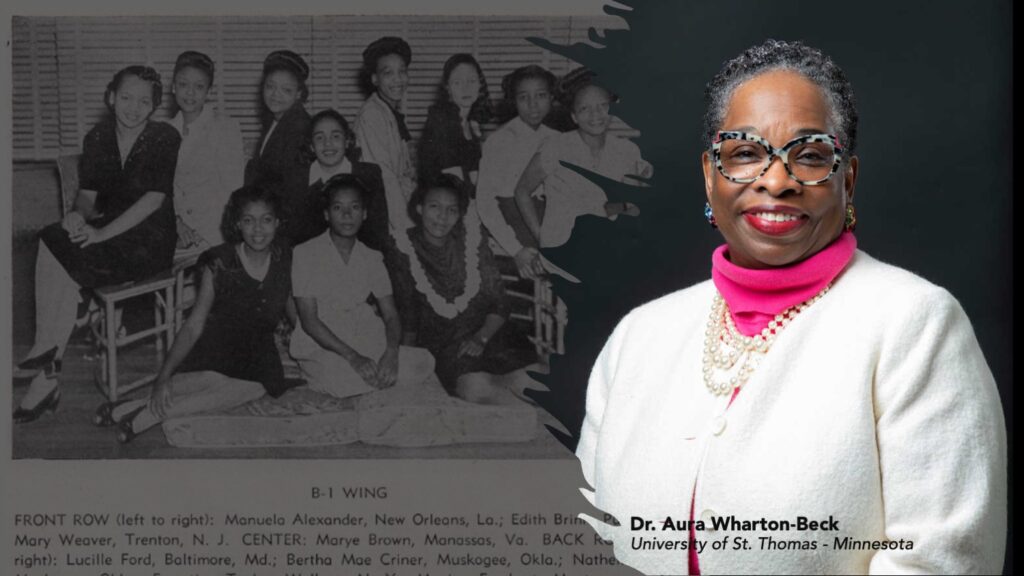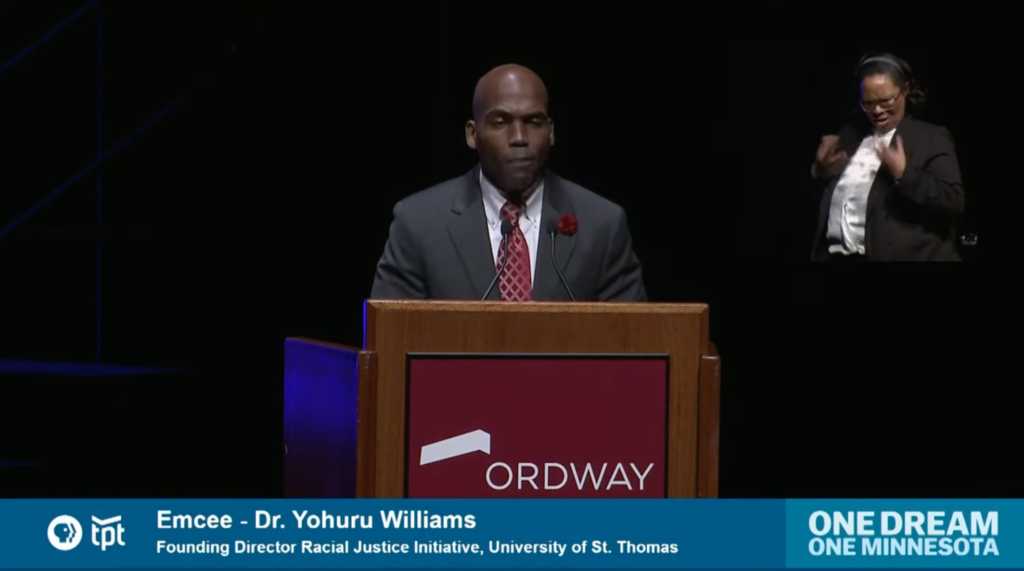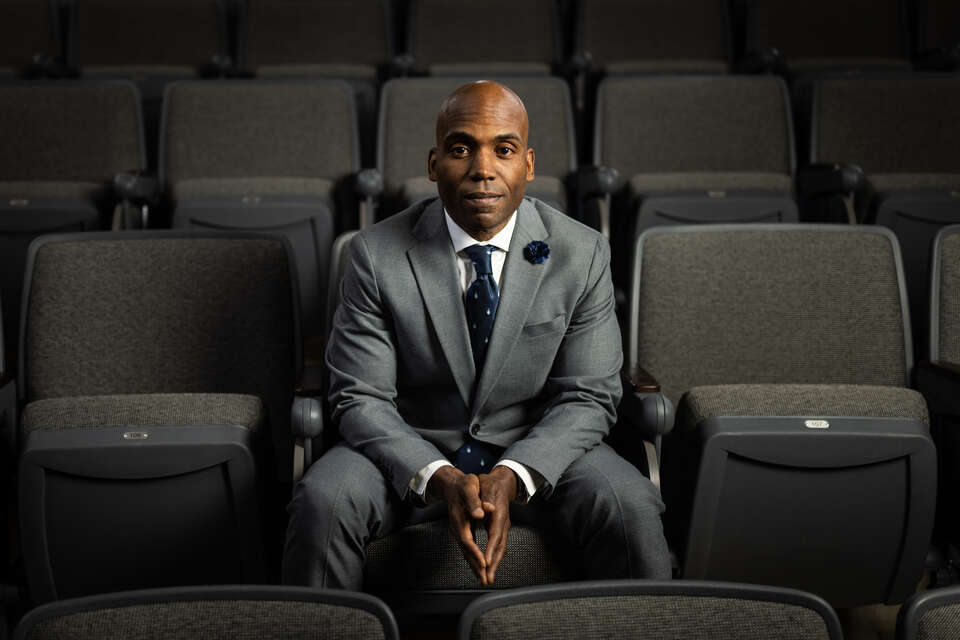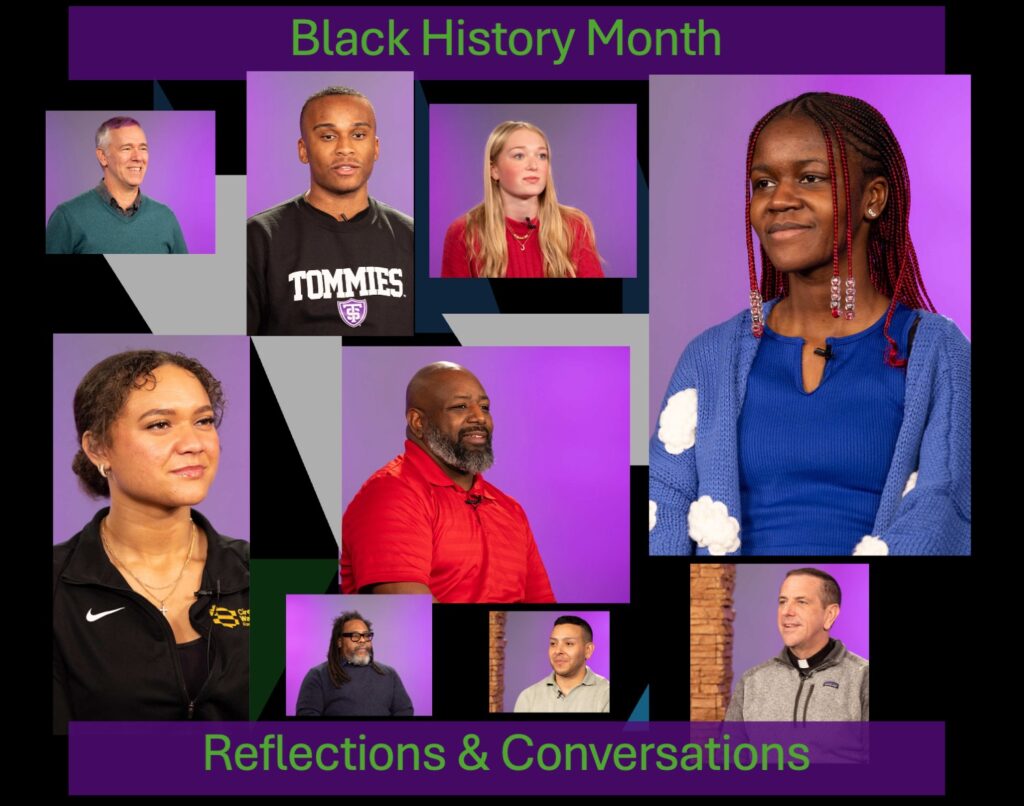A day after he appeared in the TPT documentary on housing segregation in Minneapolis, “Jim Crow of the North,” College of Arts and Sciences Dean Yohuru Williams, PhD, led the second Teach-in Tuesday.
The College of Arts and Sciences, along with the psychology program, hosted the event in O’Shaughnessy Educational Center auditorium, titled “The Disproportionate Impact of the War on Drugs.”

Yohuru Williams, Jessica Siegel, Tanya Gladney and Jessica Hodge discuss war on drugs history and impact.
Jessica Siegel, PhD, professor of psychology and neuroscience, gave a 35-minute presentation, followed by a Q&A with Williams, Siegel and two faculty members from the sociology and criminal justice programs: Tanya Gladney and Jessica Hodge.
Siegel started out with a history leading up to the war on drugs, from the populist movement of the 1890s to the Jim Crow era to the civil rights movement.
She said former President Richard Nixon's Southern Strategy, a political tactic to win support from poor white voters, set the stage for stereotypes about African-Americans and criminal activity.
Nixon then started combating narcotics in 1971 when he declared drugs public enemy No. 1.
The official launch of the war on drugs, however, came with former President Ronald Reagan in 1982 and former first lady Nancy Reagan's corresponding "Just Say No" campaign.
"At the time that this was declared in 1982, less than two percent of the population saw drugs as a problem in the United States and drug use rates were not increasing," Siegel said. "If it wasn't really about drugs, what was going on?"
The next milestone happened with the passage of the Anti-Drug Abuse Act of 1986, which created mandatory minimum sentences for drug felonies and created the 100-to-one crack versus powder cocaine sentencing disparity.
"After the war on drugs was initiated in the '80s, politicians from both sides of the aisle upheld these pretty harsh drug laws and even added more on to that," Siegel said.
For example, in 1994 former President Bill Clinton passed a federal crime bill (Violent Crime Control and Law Enforcement Act) that included the “three strikes, you’re out” law, which meant someone's third drug felony convention equaled life in prison without the possibility of parole.
Siegel said the war on drugs has had many impacts, with a disproportionate impact on African-American men:
- The number of people going to prison dramatically increased, with the United States incarcerating more of our population than any other nation. The lifetime likelihood of imprisonment now is one-in-three for black men.
- Drug arrest rates jumped. From 1980 to 1990, there was a 363 percent increase in drug-related arrests for African-Americans, compared to a 191 percent increase for Caucasians.
- By 1991, one fourth of African-American men were part of the criminal justice system.
- In Minnesota, blacks are 7.8 times more likely that whites to be arrested for marijuana possession.
This has had long-lasting impacts on incarcerated individuals, their families and communities in the areas of employment, housing and education.
"The impacts of the war on drugs in the '80s are with us right now," Siegel said.Siegel ended her talk on a positive note, providing suggestions to audience members on how they can change the situation:
- Stand up when you hear things based on stereotypes. "The way that a stereotype can continue to propagate is if no one stands up and corrects it or changes it," she said.
- Challenge some of your preconceived notions and biases about drugs themselves. "The stereotypes about the drugs themselves can be equally damaging and really influence the way that policies are made," Siegel said.
- Challenge your biases and stereotypes about formerly incarcerated individuals and what rights they should or should not have. "It's difficult to relate to that if you yourself haven't been incarcerated or you don't have a family member that's been incarcerated," she said.
- Vote. "The people that we put into office that make these laws are the ones that are going to be able to change things and shift the policies," Siegel said.
Attendees found the Teach-in Tuesday regarding war on drugs history insightful.
"It was really interesting that [the speakers] focused on Minnesota specifically for some of the data," Elizabeth Herge '20 said. "You think of the war on drugs as being a big city thing on the East Coast and the West Coast. Learning about Minnesota specifically in recent years was really impactful, because we are Minnesotans."

